
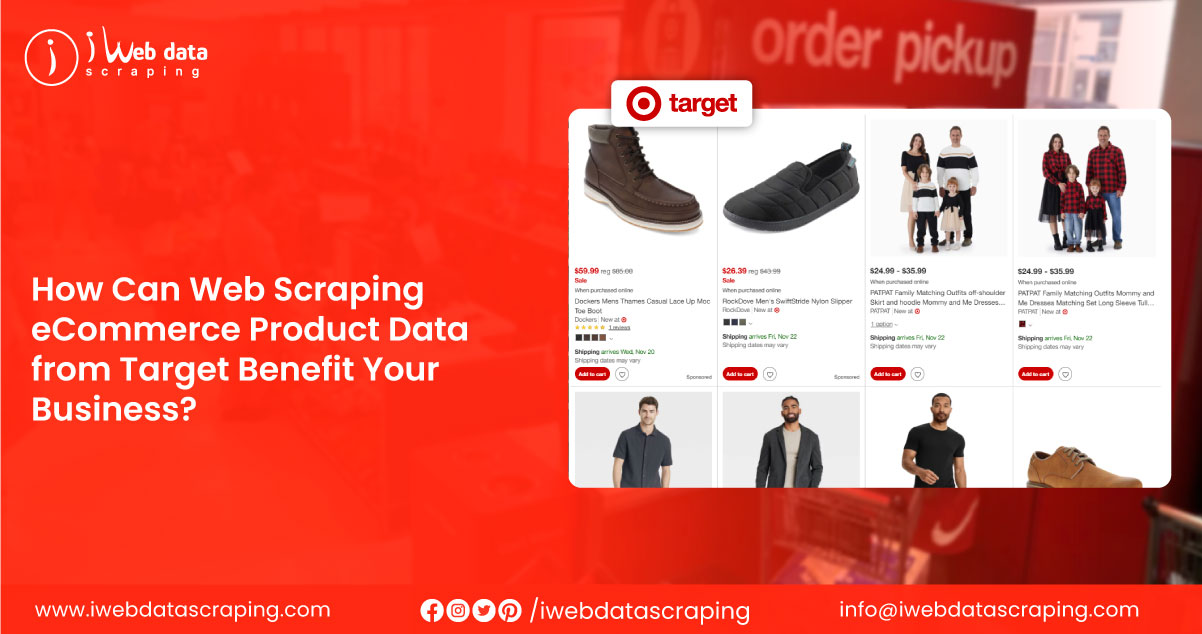
Product data scraping from major retailers like Target has become an essential tool for businesses, researchers, and analysts to gain insights into market trends, pricing strategies, and consumer preferences. Target, one of the largest retail chains in the United States, offers various products across categories like clothing, electronics, groceries, and home goods. Accessing and analyzing Target's product data can offer online retailers, eCommerce platforms, and market analysts a competitive edge. By utilizing data scraping tools, businesses can extract product information, pricing details, and availability data from Target's website, empowering them with valuable information to drive strategic decisions.
This article explores the process, benefits, and applications of web scraping eCommerce product data from Target. Additionally, it highlights the challenges and best practices associated with Target product data scraping.
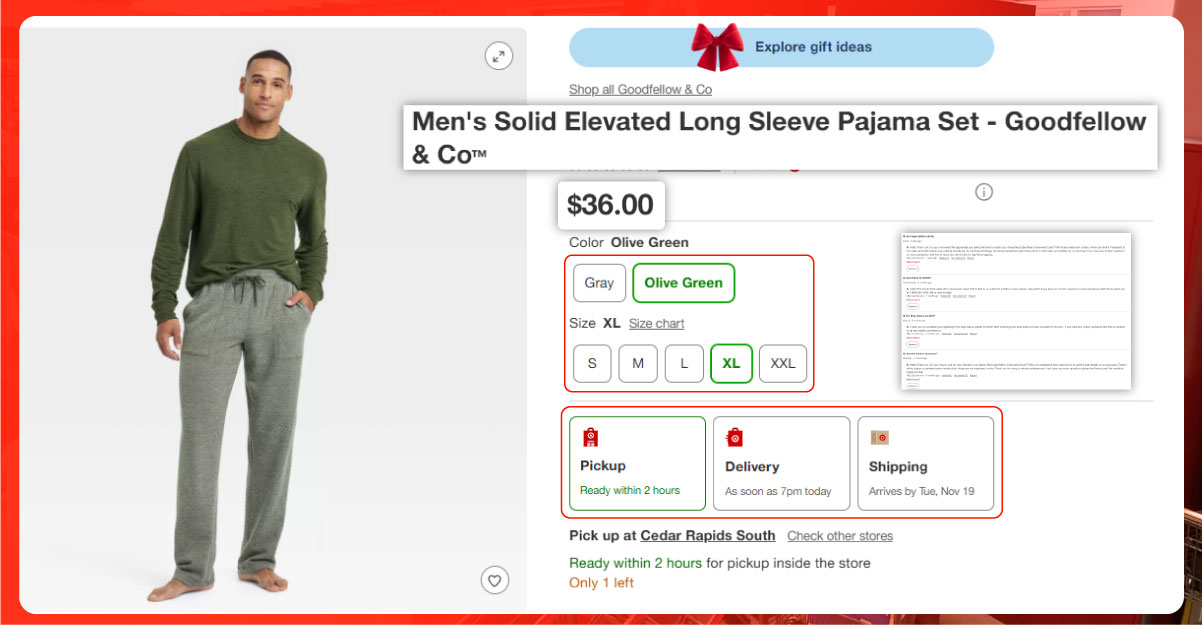
In today's digital marketplace, understanding competitor pricing, monitoring product availability, and observing consumer interest trends are essential for maintaining a competitive edge. Target's extensive product offerings and transparent pricing make it an ideal data source for companies that want to stay updated on market shifts. For example, tracking product prices and availability from Target can help retailers understand when certain products are in high demand and when Target adjusts pricing for competitive positioning. Through Target product data scraping services, businesses can access structured data from Target's website consistently and effectively.
Scrape Target product listings for eCommerce to help online retailers who want to ensure their pricing is competitive. By monitoring Target's prices on popular products, an online retailer can adjust their prices to attract customers better. Additionally, gaining insight into product trends and customer preferences through data scraping can support inventory management and marketing efforts, helping eCommerce businesses understand which products may need more visibility or promotion.
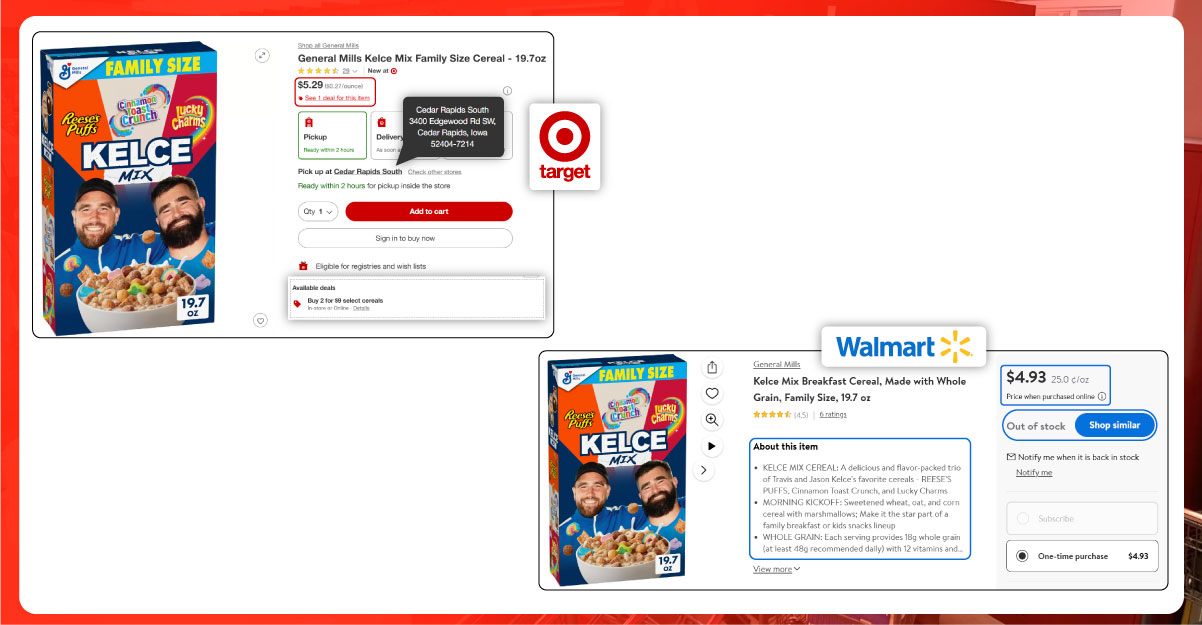
Target product data extraction offers a variety of applications across sectors:
1. Retail Price Comparison and Strategy Development:Maintaining competitive pricing is essential for online and brick-and-mortar stores. By using tools to extract Target product price data, businesses can monitor Target's prices across various categories, identify patterns in discounts, and adjust their pricing strategies accordingly. This can be particularly useful during major sales seasons when competitive pricing is a major driver of customer traffic.
2. Inventory Management and Demand Forecasting:With Target product data, businesses can observe product availability and estimate demand for specific items. For example, if a particular product frequently goes out of stock on Target, it may indicate high demand, prompting competitors to increase their stock of similar items. Scraping Target data in real- time enables businesses to dynamically respond to market demand changes, helping optimize their supply chains.
3. Product Trend Analysis:Product trends constantly evolve, and staying ahead can be a significant advantage. Retailers can identify new trends and predict customer preferences by gathering data on which products are frequently purchased or discounted at Target. This eCommerce data scraping service is valuable for brands and manufacturers that wish to align their products with current market demands.
4. Product Attribute Aggregation:Product data scraping enables businesses to gather detailed information about a product, such as its description, specifications, and customer reviews. Target product data scrapers are designed to retrieve comprehensive product attributes that can support informed product development decisions, help eCommerce stores update their catalogs, and enrich customer experience on eCommerce platforms.
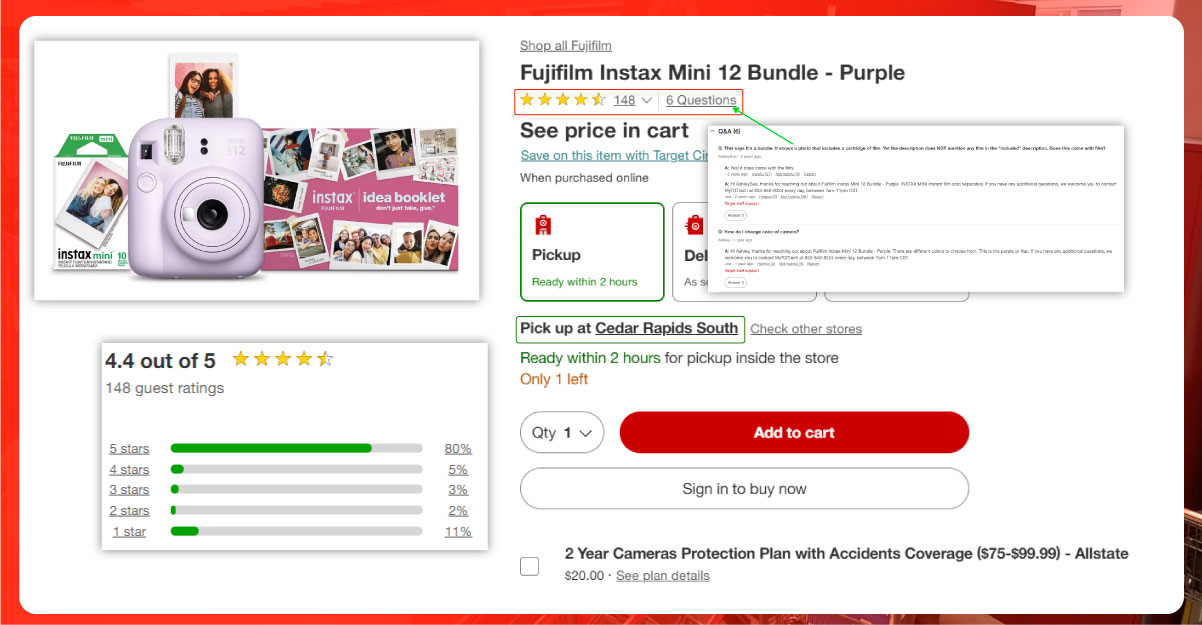
Data scraping has many advantages to extracting information from Target's website, especially for businesses in the competitive eCommerce sector.
1. Automated Price Monitoring:Manually tracking product prices on Target is time- consuming. With a Target product data scraping API, businesses can automate the process of price monitoring, ensuring they have up-to-date information on prices across a large selection of products. This helps retailers stay competitive without dedicating extensive resources to manual price checking.
2. Improved Marketing Campaigns:Insights gained from Target product data can also enhance marketing efforts. For instance, retailers can develop targeted marketing campaigns based on which products are trending on Target. By using an eCommerce data scraper to monitor product categories that are gaining popularity, retailers can tailor promotions to match consumer demand.
3. Enhanced Customer Experience:By understanding Target's pricing and product availability, businesses can provide a better customer experience. Retailers with comparable products to Target can ensure that their customers are offered similar or better prices, reducing the risk of losing sales due to price differences. Additionally, understanding product trends enables businesses to offer timely recommendations, driving better customer engagement.
4. Data-Driven Inventory Decisions:With accurate product popularity and availability data, eCommerce companies can make data-driven decisions about stocking and inventory levels. By analyzing eCommerce product datasets from Target, businesses can optimize their product lineup to better meet demand, potentially reducing holding costs and enhancing overall operational efficiency.
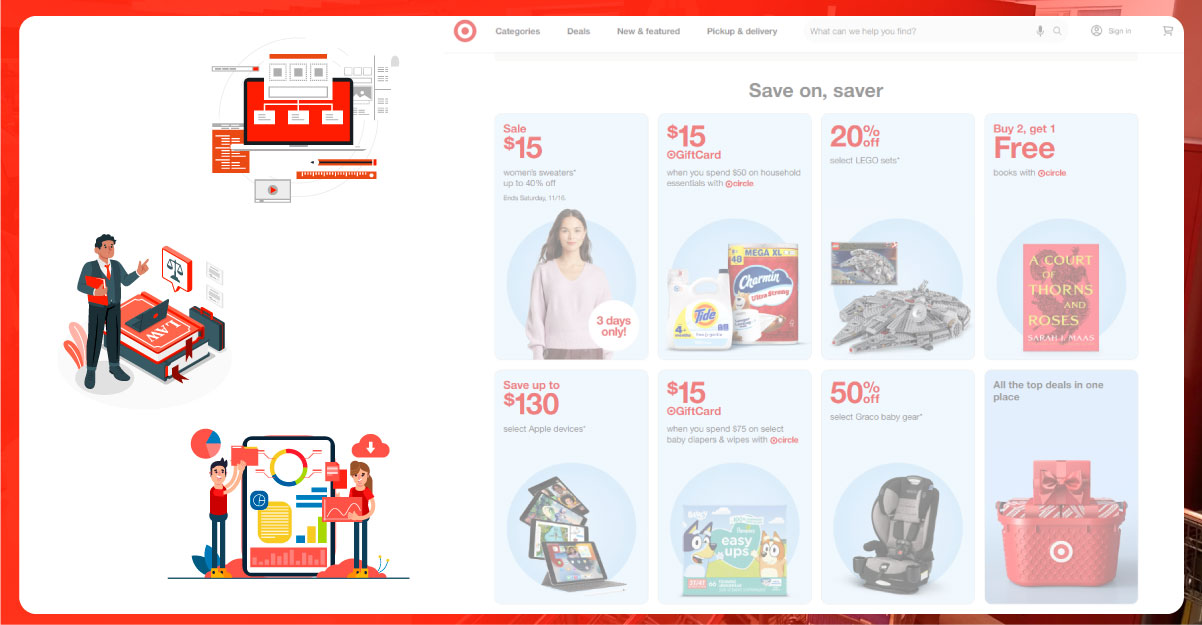
While scraping Target's product data offers numerous benefits, it also presents particular challenges. Here are some considerations for businesses looking to leverage Target product data scraping:
1. Website Structure ChangesLike many other eCommerce sites, Target frequently updates its website structure, which can disrupt scraping processes. Companies must ensure that their data scraping tools are adaptable to changes in Target's website layout to avoid disruptions.
2. Legal and Ethical Compliance:Target's terms of service may restrict data scraping, especially if it involves heavy data extraction or violates copyright agreements. Adhering to these guidelines is essential to avoid potential legal issues. Respecting data privacy and ethical standards is also critical when handling any data obtained from external sources.
3. Data Quality Assurance:Scraped data may sometimes need to be completed or consistent, depending on factors such as temporary outages or limited product descriptions. Companies must use robust validation and cleaning processes to ensure that the data collected is accurate and reliable. Implementing a Target product data scraping API with built-in data quality checks can help mitigate this issue.
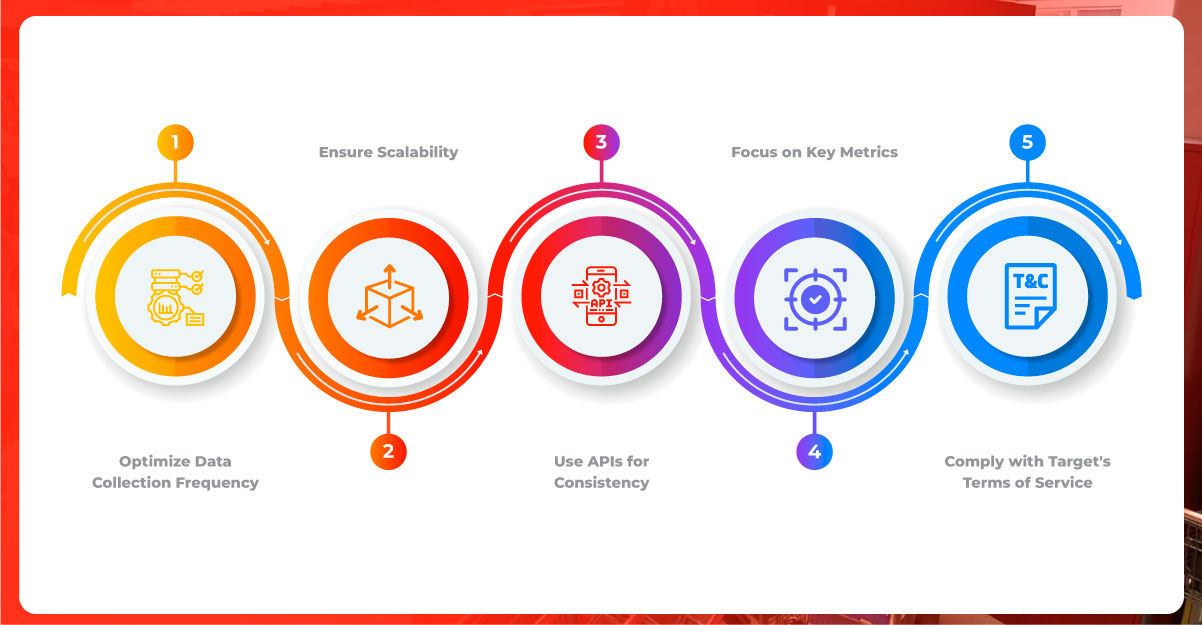
For businesses looking to maximize the benefits of scraping Target's product data, here are some best practices to consider:
1. Optimize Data Collection Frequency:Scraping data too frequently can strain resources and may lead to blocks on Target's website. Setting a collection schedule that balances data accuracy with website limitations is essential, allowing businesses to avoid potential restrictions.
2. Ensure Scalability:As businesses grow, their data needs may increase. Scalable scraping solutions enable businesses to expand their data collection efforts across various categories and products without compromising performance. Choosing a flexible eCommerce data scraping service can also allow businesses to easily adjust their data extraction strategies over time.
3. Use APIs for Consistency:A well-designed Target product data scraping API provides a consistent way to access Target's product data. APIs can facilitate real-time data collection, enabling businesses to adjust rapidly based on the latest product information.
4. Focus on Key Metrics:Identifying essential metrics, such as price, availability, and consumer ratings, helps businesses filter out unneeded data and focus on insights that directly impact decision-making. This targeted approach to collecting eCommerce product datasets ensures that the data gathered is relevant and actionable.
5. Comply with Target's Terms of Service:Understanding and respecting Target's terms of service for data usage is crucial. Some eCommerce websites may have restrictions on data scraping, and failure to comply could result in access bans or legal consequences. Staying within the guidelines can help businesses maintain a sustainable data strategy.
In an increasingly competitive eCommerce landscape, Target product data extraction for retailers provides invaluable insights to help businesses optimize their strategies, stay competitive, and improve customer satisfaction. By leveraging Target product data scraping services, eCommerce companies can monitor pricing, track trends, and make informed product decisions that align with market demands.
Despite challenges such as legal considerations and website structure changes, businesses can successfully scrape Target data by using adaptive tools, respecting data privacy, and implementing best practices. It empowers retailers to stay aligned with Target's pricing strategies, ensuring their offerings remain competitive.
Experience top-notch web scraping service and mobile app scraping solutions with iWeb Data Scraping. Our skilled team excels in extracting various data sets, including retail store locations and beyond. Connect with us today to learn how our customized services can address your unique project needs, delivering the highest efficiency and dependability for all your data requirements.